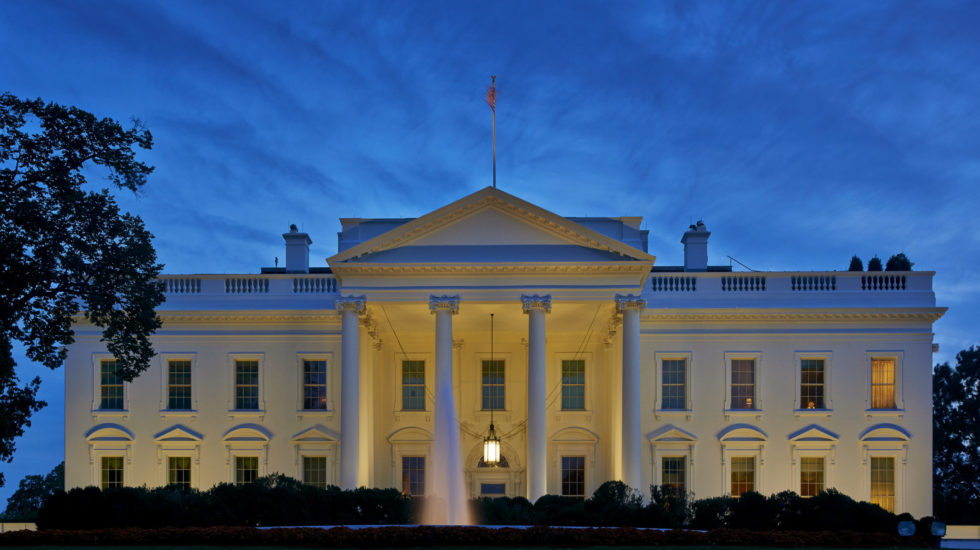John Eisenberg (JD, Yale, 2001). As the top White House lawyer for the National Security Council since January 2017, he’s been the Trump administration’s Forrest Gump.
What Does He Know?
Late January 2017: Eisenberg examines potential legal issues raised by national security adviser Mike Flynn’s recent FBI interview. During that interview, Flynn lied about his December 2016 conversations with Russian Ambassador Sergey Kislyak about sanctions and other matters. (Mueller Rep., Vol. II, p. 32, 36)
February 2017: After Trump asks deputy national security adviser K.T. McFarland to write a letting confirming that President-elect Trump had not directed Flynn to discuss sanctions with Kislyak in those December 2016 conversations, she consults Eisenberg. He advises her not write that letter because it looks like a quid pro quo for an ambassadorship to Singapore that Trump adviser Steve Bannon and press secretary Reince Priebus are dangling in front of her. (Mueller Rep. Vol. II, pp. 43-48)
March 2017: Rep. Devin Nunes (R-CA) rushes to the White House and tells Trump that he has information about government “spying” on Trump associates, although even Nunes admits later that there is no evidence of illegal spying at all. Eisenberg is involved in the farce, having reviewed the material that Mike Flynn’s associate (Ezra Cohen-Watnick) had assembled and that Eisenberg’s subordinate (Michael Ellis) then allowed Nunes to review.
May 8-9, 2017: Eisenberg is apparently present during Trump’s discussions with advisers about firing FBI Director James Comey. (Mueller Rep., Vol. II, pp. 65-69 (footnotes))
Sometime in 2017: The White House begins limiting access to transcripts of Trump’s calls with Vladimir Putin, Saudi Crown Prince Mohammed bin Salman, and possibly others. Eisenberg’s role is unknown, but subsequent events relating to his decision to hide the Trump/Ukraine transcript raise questions demanding answers.
What was Eisenberg’s Role in Ukraine?
July 10, 2019: Senior Ukrainian officials meet with national security adviser John Bolton, Lt. Col. Alexander Vindman, Secretary of Energy Rick Perry, US Ambassador to the EU Gordon Sondland, and US Special Representative to Ukraine Kurt Volker. The Ukrainians ask about a long-sought meeting between Trump and Ukrainian President Volodymyr Zelensky. When Sondland starts speaking about delivering specific Ukrainian investigations to secure the meeting with Trump, Bolton cuts the meeting short.
During an internal debriefing, Sondland emphasizes the importance of Ukraine delivering the investigations into the 2016 election and the Bidens. Vindman tells Sondland that his statements are inappropriate. The request to investigate Biden and his son has nothing to do with national security, and the NSC is not going to get involved in or push them. Vindman’s boss, Fiona Hill, then enters the room and reiterates to Sondland that his statements are inappropriate.
After the debriefing, Bolton reportedly tells Hill to talk to Eisenberg and tell him,“I am not part of whatever drug deal Sondland and Mulvaney are cooking up.”
Hill meets with Eisenberg. Vindman reports his concerns to Eisenberg too.
July 25, 2019: Vindman is among several staff and officers listening in the Situation Room when Trump calls President Zelensky. When the call ends, Vindman and his twin brother — an ethics attorney on the NSC — rush to Eisenberg’s office and tell him that what Trump did was wrong. Joining them is Eisenberg’s deputy, Michael Ellis (remember the Nunes episode?).
Eisenberg then directs that the Trump-Zelensky call transcript be moved to a separate highly classified system normally reserved for “code word” documents that are extremely sensitive, such as covert operations.
During the week of July 29, 2019: An intelligence officer who later files a whistleblower complaint delivers an anonymous accusation to the CIA’s general counsel, Courtney Simmons Elwood, that Trump’s July 25 phone call with President Zelensky raises serious questions. Elwood begins to assess whether a “reasonable basis” for the accusation exists and learns that Eisenberg is already aware of concerns about the call.
Aug. 14, 2019: Elwood participates in a conference call with Eisenberg and the chief of the Justice Department’s National Security Division, John Demers. On the call, Elwood and Eisenberg tell Demers that the allegations merit examination by the department, but the DOJ declines to pursue the matter.
What Will Eisenberg Do Now?
Here are the lines from the latest major newspaper stories that should trouble Eisenberg the most.
From The New York Times on Oct. 29:
“Mr. Eisenberg made the decision [to place the July 25 transcript in the secret server] without consulting with his supervisor, Pat A. Cipollone, the White House counsel. A White House review of the handling of the call is examining if Mr. Eisenberg acted properly in securing the notes.”
And this from The Washington Post on Oct. 30:
“Former Trump national security officials said it was unheard of to store presidential calls with foreign leaders on the NICE system but that Eisenberg had moved at least one other transcript of a Trump phone call there.”
If John Eisenberg wasn’t a rogue actor, he’ll have an opportunity to explain himself on Nov. 4 when the House wants him and his deputy, Michael Ellis, to appear. Before blindly following Cipollone’s blanket directive on Trump’s behalf to stonewall, he might consider the patriotic path of predecessors, including Alexander Vindman, Fiona Hill, William Taylor, and others.
To save himself, Eisenberg may need to follow their lead. For years, he has watched Trump throw loyalists under the bus. Now it appears to be headed his way.
Steven J. Harper is a regular contributor to News & Guts and the creator/curator of the Trump-Russia Timeline. He’s an attorney, adjunct professor at Northwestern University Law School, and author of several books, including Crossing Hoffa — A Teamster’s Story and The Lawyer Bubble — A Profession in Crisis. He blogs at The Belly of the Beast. Follow him on Twitter (@StevenJHarper1).



